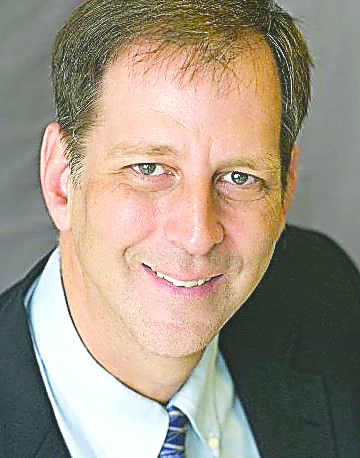Many times when I cover a story or an event, I will have a certain opinion about the subject. One good example of that is when I cover sporting events in which the Cowboys (or Cowgirls) are competing. I will clearly let everyone know that I do have a definite bias. I want the Cowboys (or Cowgirls) to win. Of course, that bias does not change the fact that I will report what happened during the contest as accurately as I can. I will report the score as the score, not how I wish the score to be, even if the Cowboys (or Cowgirls) happen to come out on the short end of that score.
There are other times when I have to walk a bit of a tight-rope in order to make sure I report "the facts" and keep "Rick" out of the story. I feel that should be the goal for anyone reporting the news. Unfortunately, that's not always the case, especially when you look at more "national" news sources. The way I see it, I don't have much control over that. I can usually recognize it when I see or hear it, so I know to take those stories with that bias understood. I usually find myself treating those stories with a great deal of doubt and skepticism.
This brings me to the issue of the Confederate monument in the middle of our beautiful city park. I can honestly say, I can see and understand both sides of the debate about what to do with the monument. I have often admired the monument. From an artistic viewpoint, I think it looks nice with its simple lines and the representation of the soldier figure at the top of the monument. That statement is not meant in any way to defend, or to criticize the "rightness" or "wrongness" of the concept of the Confederacy. Neither is it meant to defend or criticize those young men who, for whatever reason, chose, or were forced, to serve in the army on either side of that terrible conflict over 150 years ago. Some may have chosen to serve out of a sense of duty to their homeland, some may have chosen to serve in order to preserve a "way of life" (even if that "way of life" meant keeping others in bondage). Personally, I think one of the biggest reasons was because a lot of young men were simply bored with their lives and wanted adventure, and to wear a uniform that would impress girls. Regardless of the reasons, these were young men who left home and many of them never came home.
I think those young men are worthy of remembrance. I think the young men on the other side of many battlefields of that war are also worthy of remembrance. What is the best way to pay respect and to remember them? Is it with monuments of stone and metal? Would it not be a more fitting tribute to those young men and scores more young men who followed them, to recommit ourselves to living up to the idea that "all men are created equal." I am again reminded of the words of Abraham Lincoln when he gave "a few appropriate remarks" at the site of the Battle of Gettysburg:
The world will little note, nor long remember what we say here, but it can never forget what they did here. It is for us the living, rather, to be dedicated here to the unfinished work which they who fought here have thus far so nobly advanced. It is rather for us to be here dedicated to the great task remaining before us—that from these honored dead we take increased devotion to that cause for which they gave the last full measure of devotion—that we here highly resolve that these dead shall not have died in vain—that this nation, under God, shall have a new birth of freedom—and that government of the people, by the people, for the people, shall not perish from the earth.

